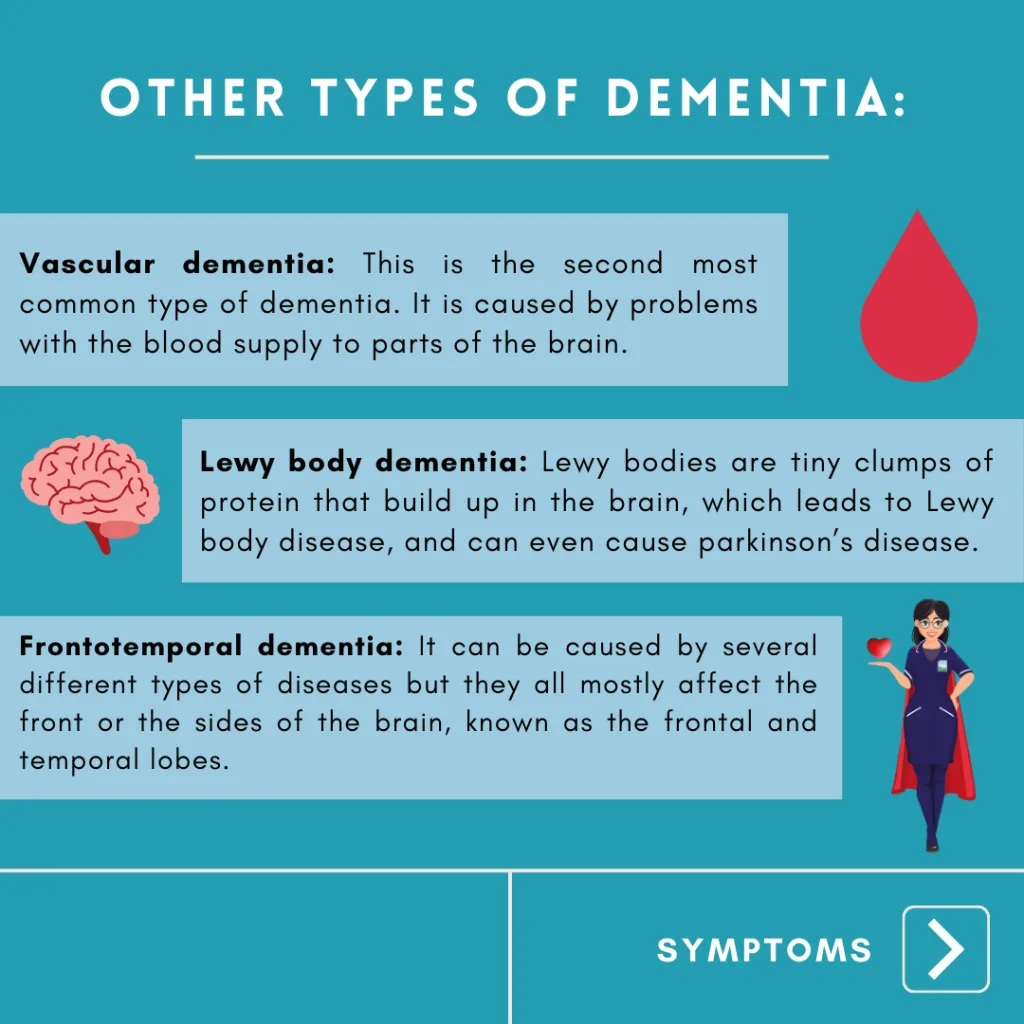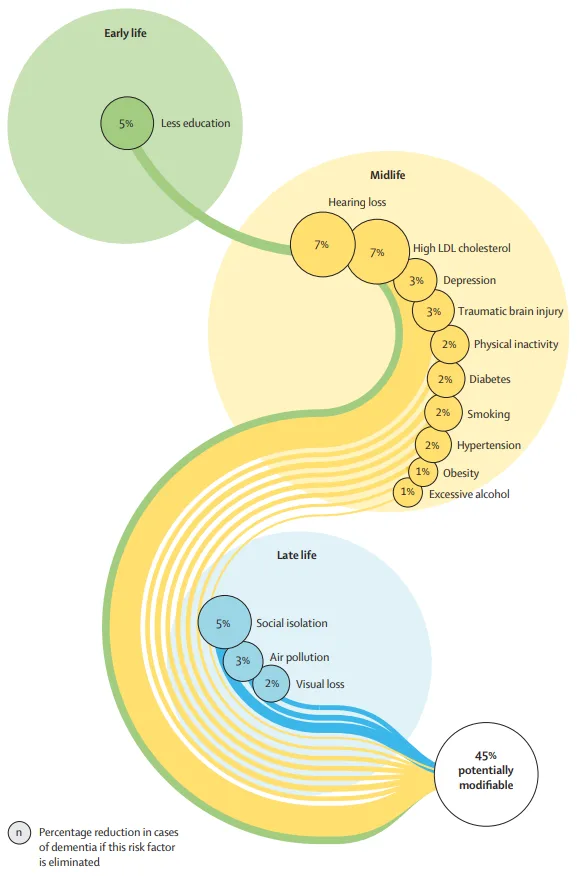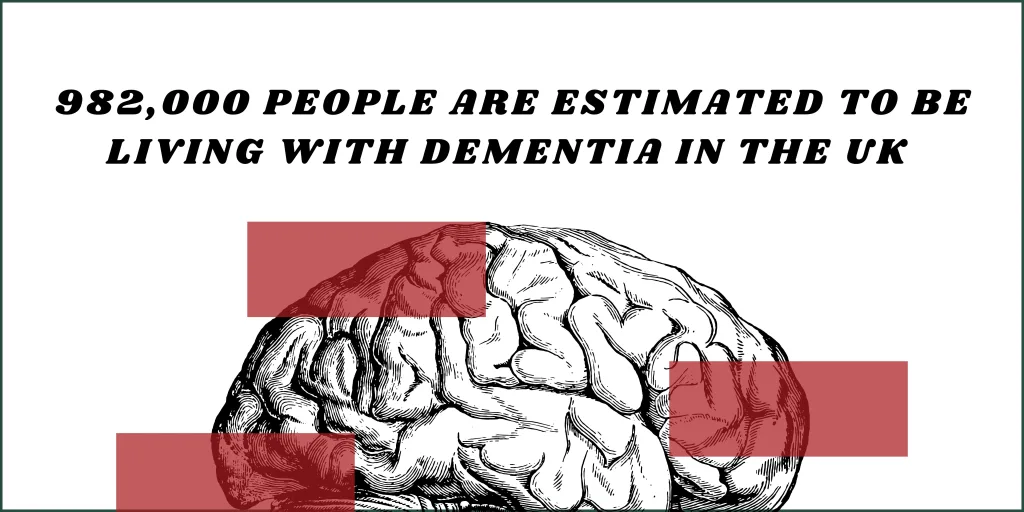Managing Alzheimer’s and dementia can be a difficult task for both those with the conditions, but their families too. Read this handy little guide to find out more, and what we at Broomfield Care can do for you.
- 1. Alzheimer's Disease and Dementia is Technically not the Same Thing
- 2. There are Several Different Types of Dementia
- 3. The Early Signs of Dementia and Alzheimer's are Often Confused with Symptoms of Ageing
- 4. Dementia is a Progressive Condition
- 5. Alzheimer's and Dementia Patients Need Specialist Care
- 6. Factors That Make Your Risk Higher
- 7. Lowering Your Risk of Dementia
- 8. You Can Check Your Risk Online
- 9. Broomfield Care Gloucester Can Help You Manage Your Dementia
- 📝References:
1. Alzheimer’s Disease and Dementia is Technically not the Same Thing
Alzheimer’s Disease is a physical illness that damages your brain, and in turn, affects your memory, behaviour and cognition. Dementia is the condition which makes individuals struggle with their thinking and ability to do everyday tasks by themselves.
The terms are often used interchangeably, but they are not the same thing, just related to one another.
Alzheimer’s is a type of disease that causes the condition, dementia. Also, it is the most common type of disease to cause dementia.
2. There are Several Different Types of Dementia
Two thirds of people with living with dementia have Alzheimer’s. However, there are several other types of dementia, such as:

In addition, It is possible to develop multiple types of dementia, which is referred to as Mixed Dementia.
3. The Early Signs of Dementia and Alzheimer’s are Often Confused with Symptoms of Ageing
Early Symptoms of Dementia include:
- Memory loss
- Difficulty concentrating and organising
- Confusion with dates, times and places
- Language and communication difficulties
- Difficulty controlling emotions and mood swings.
Even so, not all symptoms are dementia- it is common for people to be unsure whether their symptoms are dementia or just signs of old age.
If you’re worried about yourself or a loved one, talk to a GP about any symptoms you/they are experiencing.
4. Dementia is a Progressive Condition
All types of dementia are progressive, meaning symptoms will get worse over time. This is due to the structure of the brain and chemical makeup becoming more damaged as time goes on.
The symptoms listed above can progress to:
- Aggressive Behaviour
- Walking About
- Sleeping Problems
- Hallucinations and Delusions
However, everyone progresses at different rates. This is affected by factors such as their physical health, emotional resilience and the support they have.
5. Alzheimer’s and Dementia Patients Need Specialist Care
Everyone with dementia will be at different stages of progression and so, care needs to be tailored to fit with the individual’s life.
Care should promote their wellbeing and needs, focussing on what they have, not what they have lost.
It is essential that family, friends and carers should treat the person as an individual, rather than defining them by their condition or focusing on negative aspects, like lost abilities.
When looking for care, either for yourself or a loved one, make sure that the provider you go with offers personalised plans, where service users treated with compassion- find out more about the dementia care we provide here.
6. Factors That Make Your Risk Higher
Some people are more at risk than others of developing dementia.
Some of these factors are listed here:

7. Lowering Your Risk of Dementia
However, there are various changes you can make to lower your risk of dementia and Alzheimer’s. In addition, those with dementia should continue to partake in these activities in order to help slow the progression of the condition.

Alzheimer’s Research UK estimates that up to 45% of dementia cases globally could be prevented or delayed by addressing 14 risk factors in our day-to day life. This is shown in the diagram below:

8. You Can Check Your Risk Online

If you’re worried about your risk of developing Alzheimer’s, you might want to check out Alzheimer’s Research UK’s brain health check, linked here.
It takes around 10 minutes to fill out the questionnaire, which will then give you your risk level, and provide recommendations to lower this further.
In summary:
Keep physically and mentally active – Stay social – Manage your existing health conditions
9. Broomfield Care Gloucester Can Help You Manage Your Dementia

At Broomfield Care, we specialise in providing support to individuals with dementia. We help them to maintain their everyday skills and to undertake activities that thy enjoy to enable them to live as independently as possible, for as long as possible. We pride ourselves on working sensitively with individuals to encourage conversational skills and to enable the person we are supporting to maintain their interests in life.



📝References:
Alzheimer’s Society (alzheimers.org.uk)
Age UK | The UK’s leading charity helping every older person who needs us
Brain Health and risk reduction – Dementia Statistics Hub
Prevalence and incidence – Dementia Statistics Hub




